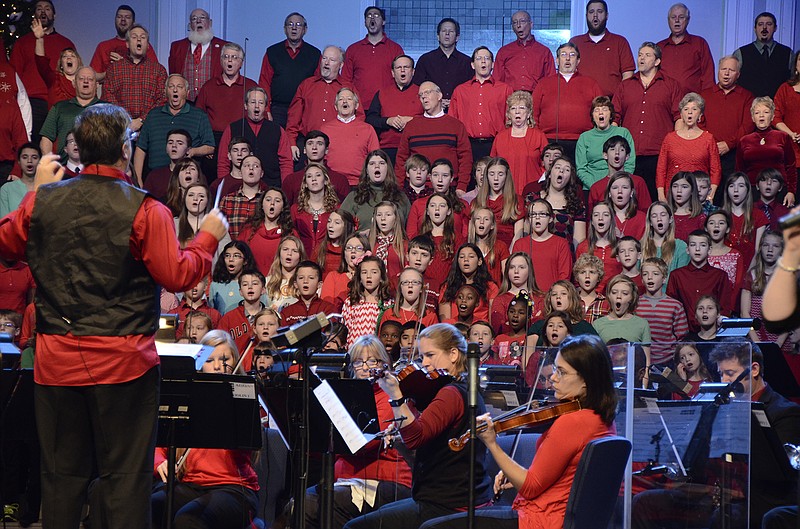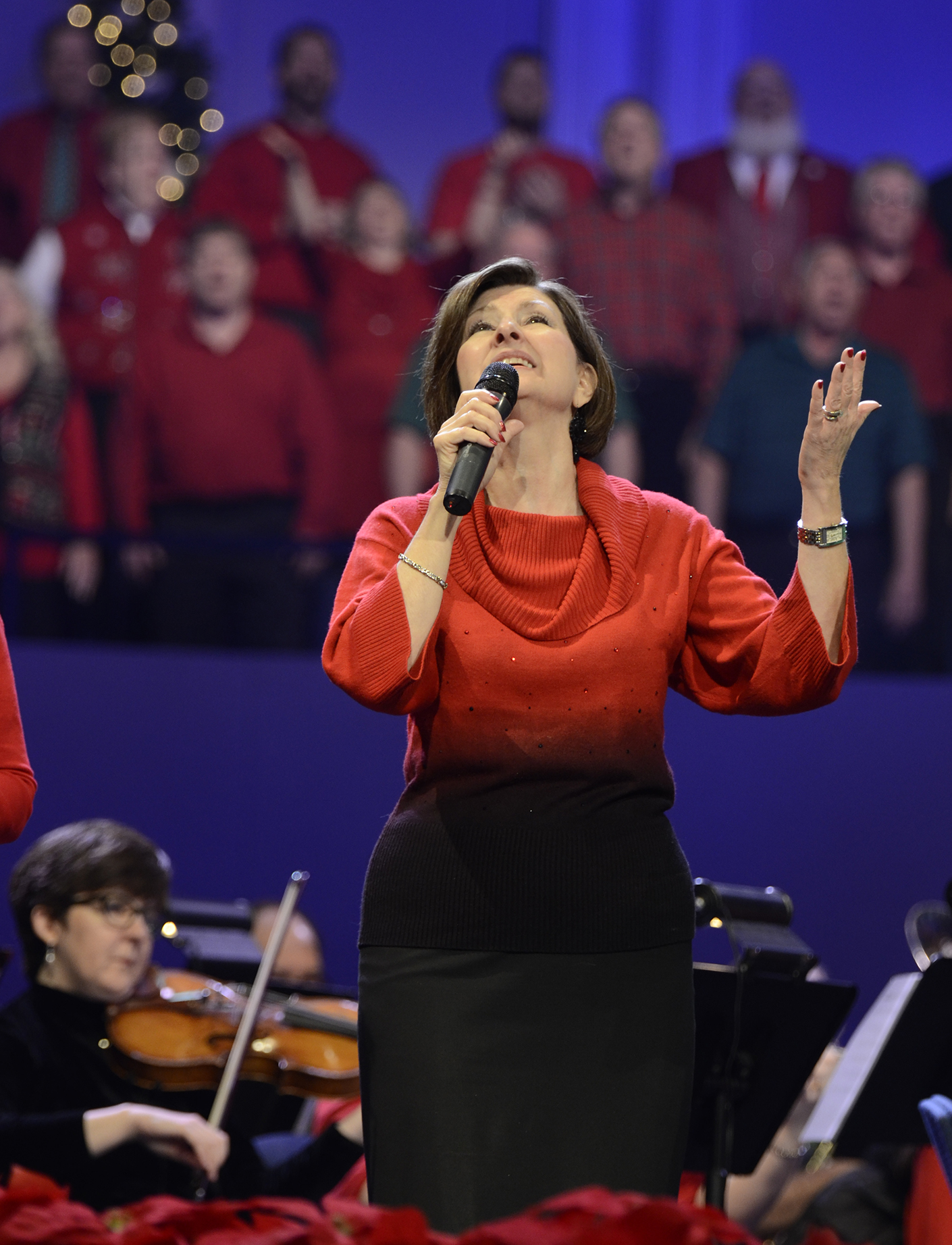Ken Hartley compares it to a baseball game.
A performer might botch the national anthem before the game, but there's still something magical about tens of thousands of people joining in on "Take Me Out to the Ball Game" during the seventh inning.
"That, to me, is the power of the choir," Hartley said.
As the pastor of worship at Abba's House, Hartley oversees a choir of some 400 members. While such large choirs are rare, a new survey of congregations suggests that traditional choirs themselves are disappearing in American churches. The National Congregations Study recently released data showing about 57 percent of surveyed churches had choirs in 2012. That was down from 72 percent in 1998.
Some say the investment of time and money needed to operate a choir 52 Sundays a year is burdensome. Others point to the influx of casual worship services and demand for contemporary music.
Whatever is causing the transition, Hartley thinks churches that ditch choirs are losing more than the music.
Abba's House, a 3,500-member charismatic Baptist church, blends traditional hymns with contemporary music. Some services may be rocking, while others feature the choir in full robes on a candlelit stage. Hartley said too many churches have become too concerned with style and staying contemporary.
"What we try to do is unite everyone around a message," he said. "While we can't all agree on style, almost all of us agree on message."
Hartley thinks churches should be promoting the arts, especially during a time that public schools seem to be abandoning them. To ensure future adult choirs, churches need youth ensembles now, he said.
"It's hard work to have a choir. It's easy to abandon it," said Hartley. "But if you want to have future worship leaders, you've got to have a choir."
The decline in choirs isn't affecting all denominations equally, said Mark Chaves, professor of sociology, religion and divinity at Duke University. Chaves oversees the National Congregations Study, which tracks church changes by surveying representative samples of congregations on issues ranging from worship music to staffing size to gay acceptance.
Surveys found relatively stable choirs in black protestant and Catholic churches. Eight in 10 black protestant churches and 69 percent of Catholic churches had choirs in 2012. In comparison, 37 percent of white mainline protestant churches had choirs, while 35 percent of white evangelical churches had choirs.
Across the board, the use of organs is down, though more churches are using guitars, drums and visual projection equipment, the study found. More churches now include adults jumping, shouting or dancing spontaneously along with speaking in tongues and raising hands in praise.
Still, most churches are keeping the amount of music constant, with about 20 minutes during each service -- about a third of the average worship service.
"It's definitely not a decline in music in worship services," Chaves said. "But it's a change in the form of music."
At the nondenominational Venue Church, the music is decidedly modern, with drums, guitars, bass and lead vocalists.
"We're very high-energy. We want to make worship fun," said worship pastor Grayson Parker. "We believe that a relationship with God should be fun. It shouldn't be something you dread. When we worship, it's very high-energy and passionate."
Grayson said the 1,000-member church still makes room for some traditional music. But members are more interested in mixing things up. Band members often write their own new songs that are influenced by what's happening in their spiritual lives at the time.
Playing the same music over and over is like preaching the same sermon over and over, which could lead to spiritual complacency, Grayson said.
"You can almost expect what's going to happen that day at church," he said. "It gets repetitive. You start losing your passion."
At Second Missionary Baptist Church, the music varies from contemporary praise and worship songs to classic hymns to spirituals that date back to the time of slavery, said Paula Coleman, coordinator of music at the mostly black church in Glenwood. The 60-member choir still wears traditional robes, but its music varies in style. Some older members expect to hear the same songs they've heard for decades, while younger members expect something more up to date.
"Those hymns and spirituals are just very important to a lot of members," Coleman said. "That's why I try really hard to offer all of the above. Because the young people want the upbeat contemporary. You kind of have to cater to everybody."
Many churches that ditched their choirs in favor of drums and guitars are realizing the value of both approaches, said Scott Dorsey, director of education at the nonprofit American Choral Directors Association. So instead of choosing one or the other, many are trying to please both crowds with multiple services.
"Life is full of pendulums," Dorsey said. "They swing radically side to side and then back to something sembling moderation."
While some debates over music within the church have grown heated, Dorsey said most realize that the point of church music is to supplement -- not overshadow -- the importance of the spoken word.
"The church needs to find balance between what it must do and what society wants," he said. "There are those on the far spectrum who will claim it's a holy war. It is nothing of the sort."
Contact staff writer Kevin Hardy at khardy@timesfreepress.com or 423-757-6249.

